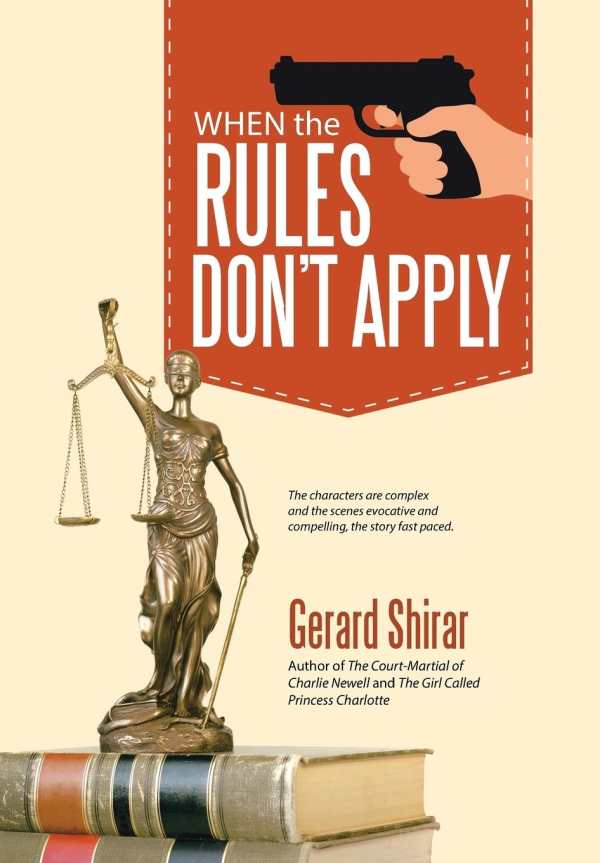When the Rules Don't Apply
This mob thriller provides an all-too-realistic window into a frightening world.
In Gerard Shirar’s riveting crime and legal thriller When the Rules Don’t Apply, law and order are just some of the casualties of a psychopathic hit man, Donny Faye.
Narrated by lawyer Timothy Flaherty, the novel charts the savage career of Faye, a mobster who cuts a red swath through Boston at the behest of a schizophrenic crime lord, Percy Dwyer. When he runs afoul of both Dwyer and the law, Faye ropes Flaherty, his childhood friend, into defending him. The move has unexpected and bloody consequences.
The writing is straightforward, allowing the violent subject matter to make its full impact. Filled with dirty deals, double-crosses, and death, part 1 of the two-part novel reads like a crime documentary. Though it’s fiction, the narration’s ring of realism adds to the book’s chilling nature.
One of the story’s most disturbing aspects is the matter-of-fact and believable way it shows how, with little care and thought, Faye kills at will and gets away with it, just as if “the rules don’t apply.”
Beginning with Faye, characters are clearly and sympathetically drawn. Players both minor and major have their own agendas, thoughts, and feelings. Even Faye, who is clearly a monster, has a relatable backstory; he was abused in his childhood by both his father and the school system, and this history elicits some pity.
Diagnosed as a sociopath as well as a psychotic, Faye plays on that pity freely, lying about his guilt to manipulate Flaherty into defending him. While the cruelty and violence of the big-city underworld are the hallmarks of part 1, part 2 details Flaherty’s defense and explores the moral quandaries and contradictions inherent in the justice system.
How much weight should an attorney give to the risk to society when they are trying to exonerate a murderous client? The novel explores this and other questions of morality and justice through dialogue, action, and step-by-step legal procedures. Part 2 shines particularly brightly when it is detailing the maneuvers and acrobatics involved in building a defense in a high-profile murder case.
Dialogue is realistic and conversational, from Flaherty discussing legal strategy with his assistant to Faye getting the details for a murder job from his boss. However, typos and malapropisms appear regularly every few pages and are distracting.
When the Rules Don’t Apply is a compelling look at mob culture and an imperfect justice system that struggles to keep up—an all-too-realistic window into a frightening world.
Reviewed by
Gary Henry
Disclosure: This article is not an endorsement, but a review. The publisher of this book provided free copies of the book and paid a small fee to have their book reviewed by a professional reviewer. Foreword Reviews and Clarion Reviews make no guarantee that the publisher will receive a positive review. Foreword Magazine, Inc. is disclosing this in accordance with the Federal Trade Commission’s 16 CFR, Part 255.

